She’s one of the Syrian refugee ‘hero swimmer’ sisters. Now, she’s in a Greek prison.
Syrian refugee swimmers Yusra Mardini (left) and Sara Mardini pose with the Silent Heroes award during the Bambi 2016 media awards ceremony in Berlin, Nov. 17, 2016.
On Aug. 21, Greek police arrested Sara Mardini, 23, renowned as one of the Syrian “hero swimmer” refugee sisters, at an airport in Greece. She faces charges of people smuggling, espionage and membership in a criminal organization and is being held in an Athens prison. A hearing Friday was scheduled before a judge to review the accusations against her, but she could be detained for up to 18 months or until the case goes to trial, according to an attorney working on her behalf.
Sara Mardini, a student in Germany, had been volunteering with European Response Centre International in Greece over the past several years, helping fellow refugees. Some who know Sara Mardini best, as well as others in the humanitarian world, are rallying around her and maintain her innocence. They say she’s being made an example because of her incredible story of survival and activism on refugee issues. And some activists are concerned, as well, about the broader implications of her arrest for those doing this kind of aid work in Europe.
Ariel Ricker, director of Advocates Abroad in Greece, which provides legal, medical and other types of services to refugees, recently voiced support for Sara Mardini, saying her organization “stands in solidarity with all the rescue teams and NGOs at the mercy of many former partner and ally EU states and national agencies,” adding, “Let us hope each of these volunteers of ERCI are released soon and returned safely home. It is too much to hope for, that they would once more risk their personal safety to the fickle justice of Greece.”
Prior to her arrest, Sara Mardini and her younger sister, Yusra Mardini, 19, were better known for saving the lives of 18 other refugees. Sara Mardini and Yusra Mardini made international headlines in 2015 when they pulled their rubber dinghy to the safety of Greek shores after it became waterlogged and began to sink during what was supposed to be a short, two-hour journey from Turkey. In a moment of desperation, the two young swimmers made a split-second decision: to both jump overboard and swim alongside the boat to relieve some of the weight.
Because they were both experienced swimmers, the Mardinis, when faced with the option of reaching Europe by land over the Evros border or the quicker but more dangerous sea route, opted for the latter. With the aid of people smugglers, they would attempt to cross the Aegean Sea between the island of Lesbos and the western coast of Turkey. The first time Sara Mardini saw their inflatable, rubber boat on the beach, she was scared and thought that something was wrong. The rubber dinghy was meant for eight people, but instead was carrying 20. “I didn’t think that we were going to make it,” she said in an interview for “Love Story, 2016,” an 18-minute film about the perilous boat journey that night.
Love Story, 2016 / [TRAILER: Sarah Mardini Interview] from Candice Breitz on Vimeo.
With so much extra weight, just 15 minutes after leaving the Turkish shore, the motor broke down and the boat began taking on water. “I was thinking that I am a swimmer and that I shouldn’t sit there like a baby crying; I should do something to help people,” said Sara Mardini, in the filmed interview. So, she and her sister and two men jumped overboard.
For 3 1/2 hours, the sisters swam alongside the boat, one on each side, nudging it and guiding it along. It was the worst nightmare of her life, Sara Mardini said in the interview, of the moment she and her sister plunged into the water. Sara Mardini was not only thinking about herself, but of her sister, and the 16 other people in the boat: “In this situation, if I let anyone die, it would be a shame on me; I would never forgive myself.”
Soon after their safe arrival to Greek shores, word spread of their ordeal and miraculous survival. It wasn’t long after this that the two sisters received the nickname hero swimmers and awards for their efforts. But that’s not the only reason the Mardini sisters have captured the spotlight.
Related: Inside Italy’s plot to infiltrate migrant rescue boats in the Mediterranean
Before making the trip to Europe in August 2015, Sara Mardini and Yusra Mardini both swam on the national swim team in Syria. Sara Mardini also studied law at a university in Damascus. But the Syrian civil war changed all of this. In “Love Story, 2016,” Sara Mardini described what it was like learning that the Arab Spring — a wave of anti-government protests, uprisings, and, often, armed rebellions that spread across the Middle East and North Africa starting in early 2011 — had finally reached Syria.
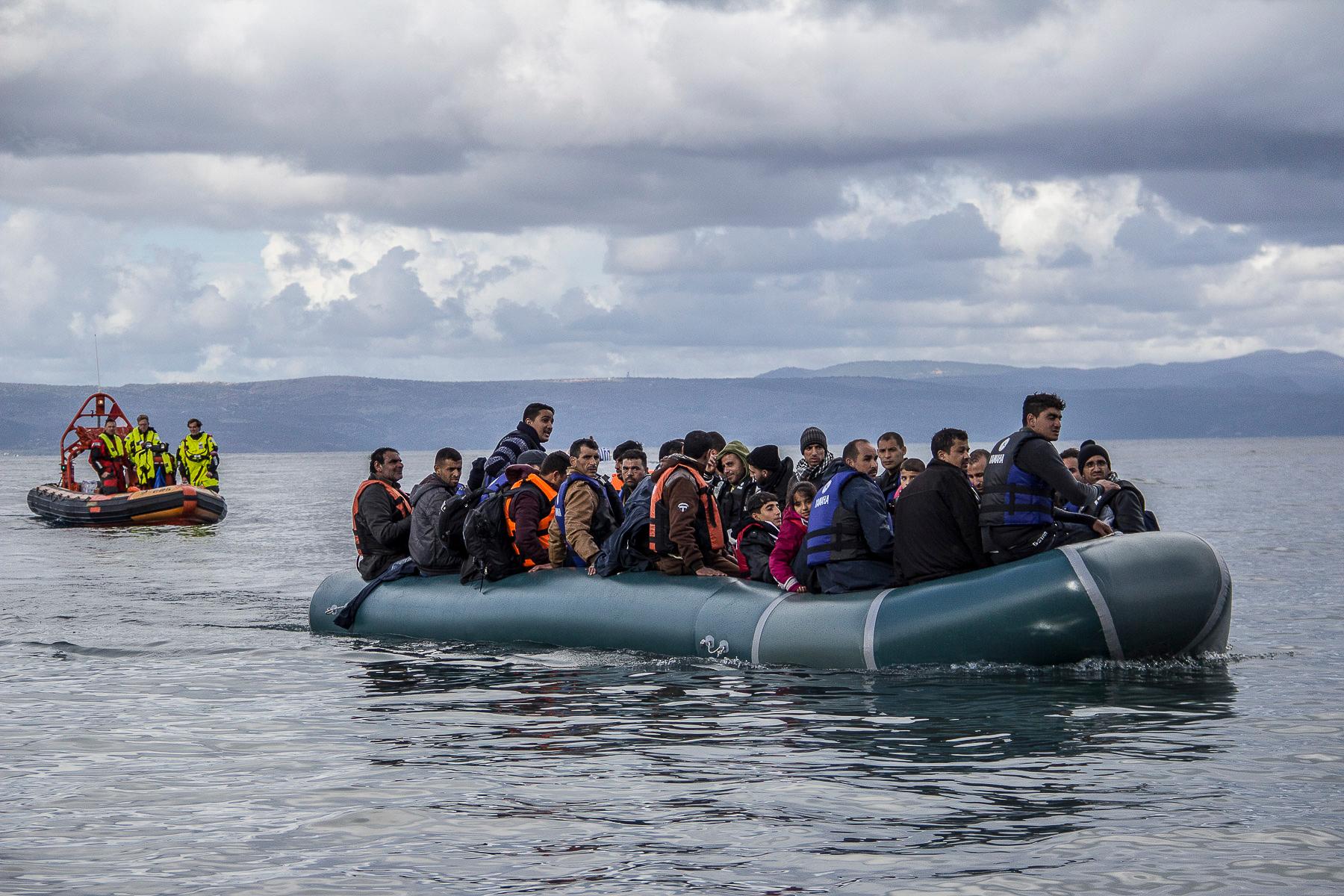
“When the war started, we were so shocked,” she said, looking intently into the camera. She wore a traditional, black-and-white Palestinian kaffiyeh around her neck and sat in front of a green backdrop. “We were watching on TV that there was war in Libya and Egypt, and we never believed that one day it would happen in Syria.”
But the war did come to Syria, and so the Mardinis left their home in Damascus on Aug. 12, 2015, to make the long trip to safety in Europe. Twenty-five days after their departure, they reached Berlin. But during that time, the two sisters endured many difficulties. “It’s hard for girls to travel alone because you don’t know what will happen,” Sara Mardini said in the interview.
Sara Mardini settled in Germany with her younger sister and has traveled back and forth from there to Greece over the past three years to help other refugees as a volunteer spotter and rescuer for the Greek nongovernmental organization, ERCI. Until Aug. 21, she had never had a problem related to her volunteer work.
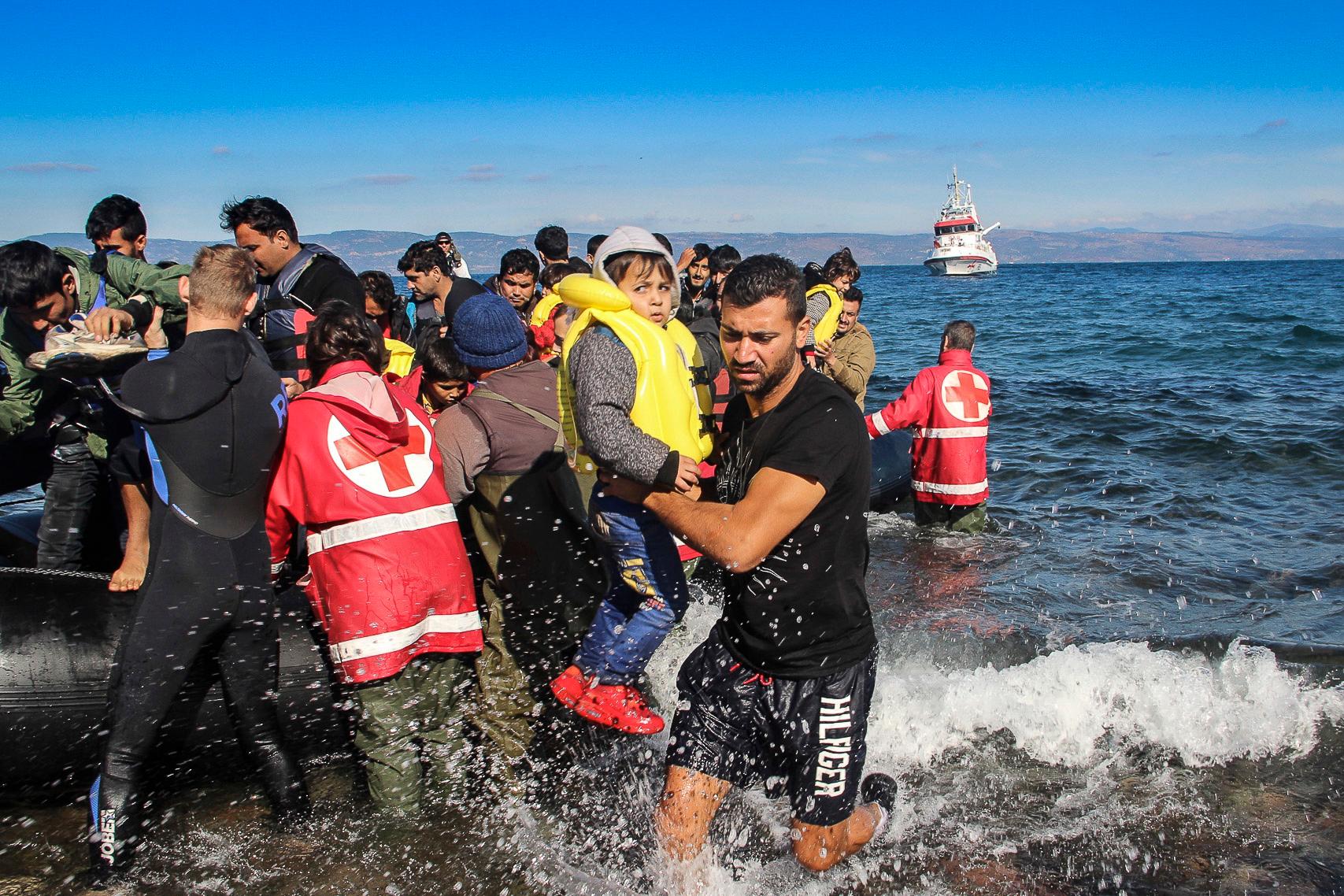
Her arrest came at the airport on Lesbos island that day while she waited to board her flight back home to Germany, where she was set to start the fall university term. While Sara Mardini received a scholarship for gifted refugees to study economics and social sciences at Bard College Berlin, Yusra Mardini went on to participate on the first refugee team at the 2016 Olympic Games in Rio and became a “goodwill ambassador” for the Office of the United Nations High Commissioner for Refugees (UNHCR). Also, Yusra Mardini has recently written a book, “Butterfly,” about these experiences that will soon be made into a film by British producer Stephen Daldry.
In a series of tweets since Sara Mardini’s arrest, Bard College Berlin has called for the continued support of their student. On Sept. 6, the school tweeted that it is “working to expedite her release.”
In a Skype interview in September, professor Florian Becker, managing director and legal representative of Bard College Berlin for this case, reinforced this sentiment: “We want to be as much support to Sara as we can. We believe that she will be acquitted. We believe that she’s innocent of these accusations. Our efforts on the legal front are guided by the aim to shorten this pretrial period so that it’s decided swiftly whether this thing goes to trial or not.”
Becker says he, along with Sara Mardini’s lawyer, Haris Petsikos, and her family members, are the only people who’ve been in contact with her since her arrest. “There are periods when she’s a little bit down, but on the whole, she’s in amazingly good spirits given the situation,” Becker said. “If you know anything about her, by now, it’s obvious that she’s a very strong person, especially for someone her age.”
In a telephone interview with The World on Sept. 26, Petsikos, the attorney on Sara Mardini’s case, responded to the accusations outlined in the official police documents, emphasizing that “the evidence they [the inquisitor and police] have is not equivalent to the accusations of the case.” Petsikos, representing both Sara Mardini and Irish volunteer Sean Binder, described the surprise these two longtime volunteers expressed at being accused of such serious crimes as people smuggling, money laundering and espionage.
“They were just here working as volunteers as everybody else does, doing the exact same things as all the other volunteers in ERCI or in other organizations do. We deny any kind of involvement in illegal activity.” Nevertheless, Petsikos expects the case to go to trial, but with the lack of hard evidence thus far, he believes that Sara Mardini and Binder will be declared innocent.
Along with Sara Mardini, four other individuals connected to ERCI were also arrested, including Panos Moraitis, founder and leader of ERCI; two Greek nationals working for the organization, Nassos Karakitsos and Mirella Alexou; and Binder. Several weeks passed before authorities officially released information about these arrests, although news of their detention did not escape family, friends and co-workers who, in turn, went on to inform the media.
And while Sara Mardini was immediately transferred to the women’s wing of a maximum-security prison on the outskirts of Athens, the others were relocated to a prison on Chios island. Early last week, all five were taken back to Lesbos and are going through preliminary hearings this week, wherein only supplementary accusations will be reviewed, according to Becker. These hearings do not, however, affect their detention. According to Greek law, they can still be held in detention for up to 18 months until their trial.
Police say Sara Mardini’s arrest happened amid an operation to dismantle a “criminal network,” which also involves several other members of ERCI, namely its founder, Moraitis, who turned himself over to authorities on Sept. 23, according to Becker. In their official press release, the police state that, among the charges of involvement in a criminal organization (ERCI), money laundering, violation of state secrets and espionage via the use of binoculars and wireless radio transmitters, Mardini and the four others aided systematically in the illegal movement of people from other countries (what is referred to in the police documents as “third countries”).
“From their entire mode of operation it was determined that [the individuals] offered immediate assistance with organized networks for the illegal movement of migrants, as they acted with intent to aid the professional and habitual movement of a large number of citizens of third countries to the islands of the Northeastern Aegean (Lesvos and Samos) on at least eleven instances, between August 2016 and January 2018,” the police report says.
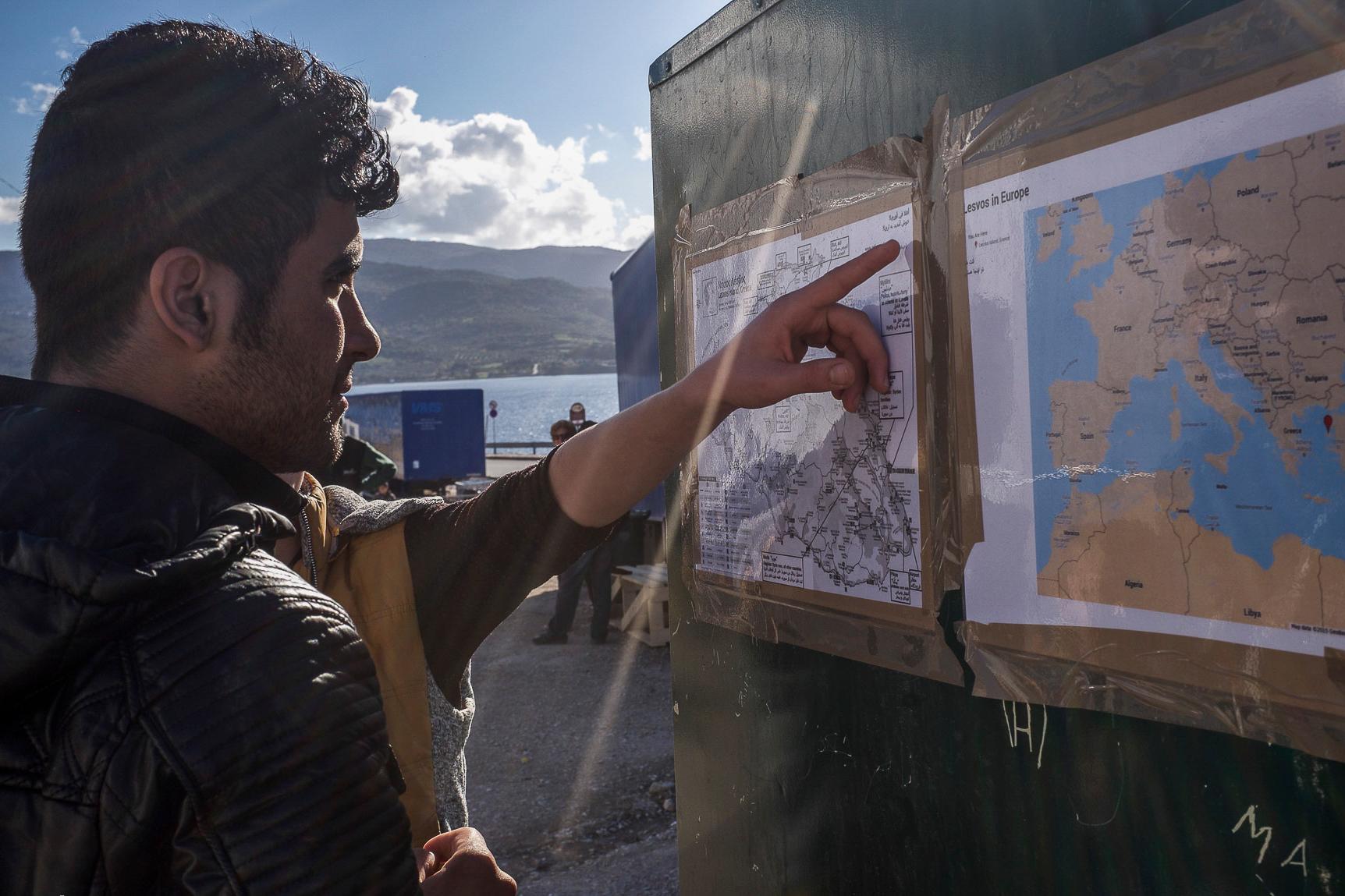
However, on many of the dates that Greek authorities claim Sara Mardini committed the crimes, she was not even in Greece but was either attending class in Berlin, sitting for exams, or otherwise engaged in public speaking elsewhere in Europe. The proof, Becker says, is readily available from Bard College Berlin and professors there as well as Sara Mardini herself.
Nevertheless, Sara Mardini is being held in detention until further notice, the report says, “to ensure that she will be present for interrogation or in court and undergo the enforcement of the decision.” And, furthermore, “because it is also judged that if the accused [Sarah Mardini] is let free, it is very likely that she will commit other crimes.” In a press release issued on Aug. 29, ERCI denied all charges against the organization and its members. And ERCI has suspended their operations indefinitely, according to its website.
In 2015, during the mass influx of refugees and migrants to Greece, Greek national Moraitis felt compelled to do something about the humanitarian disaster unfolding in his country. “The moment that changed everything for me was the photo of Alan Kurdi washed up on the shores of Turkey,” explained Moraitis, about the 3-year-old who died at sea. “At that moment, my wife was pregnant with my daughter, and it really struck a nerve.” And so he founded ERCI.
What started out as a “one boat, one car and two people” organization, ERCI quickly became one of the more active nonprofits on the island conducting search and rescue missions. But always by the book, Moraitis stressed. “We were [always] working closely with the authorities, and we are extremely surprised by how things are turning out [with ERCI],” he said during a Sept. 14 phone interview, prior to turning himself in.
Related: Refugee women in Greece are moving forward. But many men around them are not.
And although ERCI is a fairly small organization, it has had quite a big impact. Nassos Karakitsos, taken into police custody, volunteered for 1 1/2 years straight and alone rescued over 30,000 refugees, according to Moraitis — not an entirely outrageous number considering that at the height of the refugee influx, approximately 5,000 refugees and migrants from the Middle East and North Africa landed on the island’s beaches every day. This number has since dwindled to approximately 100 every few days, according to UNHCR data, since March 2016 when the EU-Turkey deal came into effect.
Compared to 2015 and early 2016, the number of arrivals today are nowhere near as high. The difference, however, is that “before, people were flowing through and [Greece] was a transit country, whereas now it’s become an asylum country,” Leo Dobbs, UNHCR’s senior communications officer, told The World in a phone interview. “[Now] it’s more of a ‘reception crisis’ rather than a refugee crisis.”
For the past three summers, Sara Mardini has returned to Lesbos to volunteer with various NGOs and nonprofits on the island, most notably with ERCI. She has participated in search and rescue missions like hundreds of other volunteers before and after her. But because of Sara Mardini’s amazing story of resilience and ongoing activism, she is relatively well-known in the humanitarian world. “I feel that targeting Sara helps put the case more in the spotlight, showing that the authorities will go after anyone if they get involved with sea rescue,” said Moraitis.
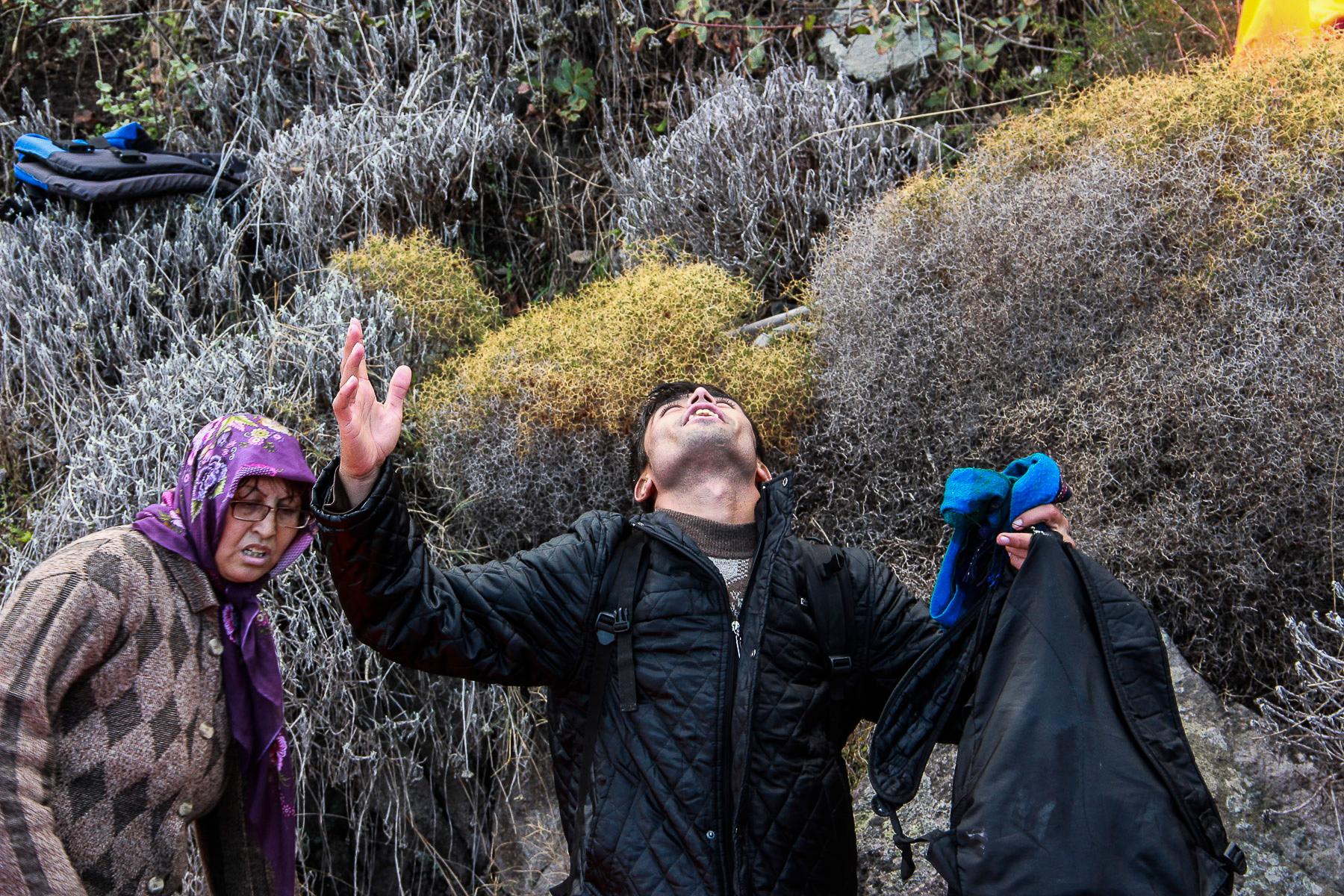
In a Sept. 28, 2018, written statement, Yusra Mardini, who lives in Germany, expressed support for her sister and defended her innocence. She stated that Sara’s actions are also no different than many volunteers before who dropped everything to help people in need. “Being there for people who need us is the least that we can do and being humanitarians is our right,” she explained. She also stated that she can’t “comment on the legal matters of this case in order not to jeopardize future proceedings.”
Moraitis is not the only one who feels Sara Mardini has been unfairly singled out as a result of her notoriety. According to Amed Khan, New York financier-turned-philanthropist, “This is a charade.” Khan has been working in various capacities with the refugee crisis since the beginning, most notably building and running Elpida Home in northern Greece, an NGO committed to providing an alternative living experience to the dangerous and unsanitary camp conditions most refugees in Greece are forced to live in.
“According to Interpol, human trafficking into the EU amounts to around 15 billion annually, and it’s a very real, dangerous and horrific thing that needs to be destroyed. But it’s also a real travesty of justice that these innocent and heroic kids are being used as scapegoats for the authorities to pretend they are effectively combating the smugglers,” Khan said.
Related: Some refugees use Grindr to find love — and money
It is not the first time Greek police have arrested or accused volunteers on Lesbos of people smuggling; however, charges in previous cases have not been as serious as those lodged against Sara Mardini and the others being detained. “The accusations are more about criminalizing humanitarian action. Sara wasn’t even here when these alleged crimes took place but as charges they are serious, perhaps the most serious any aid worker has ever faced,” Petsikos said in an interview with The Guardian.
In 2016, two Danish and three Spanish volunteer rescuers from the groups Team Humanity and Proem Aid were arrested and charged with people smuggling. Over two years later, all five volunteers were acquitted of all charges. If Sara Mardini’s case goes to court, a similar outcome is hoped for, said Moraitis.
With over 10,000 refugee and migrants living on the island, Lesbos is now host to the highest concentration of refugees and migrants in Greece. Lesbos is also host to the largest camp in Greece: Moria camp, recently dubbed one of the worst refugee camps on Earth. Originally meant for 3,000 occupants, according to the UNHCR, Moria camp now holds approximately 8,300 refugees and migrants from countries across the Middle East and Africa.
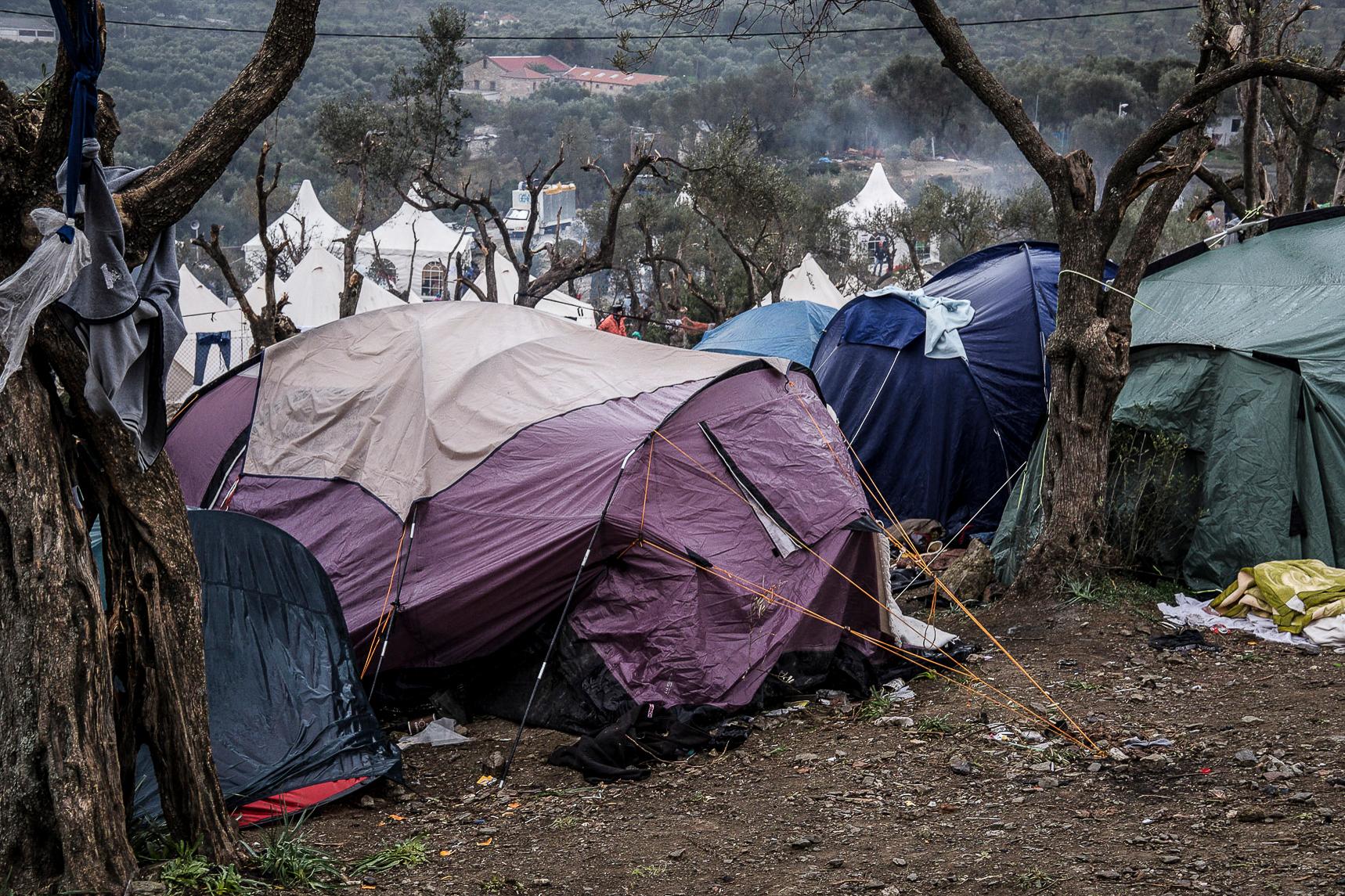
On Sept. 10, the Regional Authority of the North Aegean issued an ultimatum to the Ministry of Migration Policy: Clean up the overcrowded Moria camp within the next 30 days, or face closure. Moria’s unsafe and unsanitary living conditions were the reason behind this ultimatum. As that deadline looms, however, it’s unclear whether the edict will be enforced.
“Everyone would like to see Moria closed, but at the moment we are calling for accelerated measures to decongest Moria and for the increase in accommodation places so that people can move to the mainland, especially at a time when people continue to arrive on the island,” Dobbs said about the UNHCR’s current stance on Moria camp.
And yet, as horrible as the situation continues to be on Lesbos island, Sara Mardini returned year after year, back to the point of her original trauma, something Moraitis said is a unique characteristic of the oldest Mardini sister. “To see someone undergo such trauma, to show such courage in the face of death, and to still go back to the place of trauma to help others, is nothing short of inspiring.”
Editor’s note: We spelled Sara Mardini as it is in Arabic, in keeping with her spelling on Twitter.
Fahrinisa Campana reported from Greece.
Our coverage reaches millions each week, but only a small fraction of listeners contribute to sustain our program. We still need 224 more people to donate $100 or $10/monthly to unlock our $67,000 match. Will you help us get there today?
